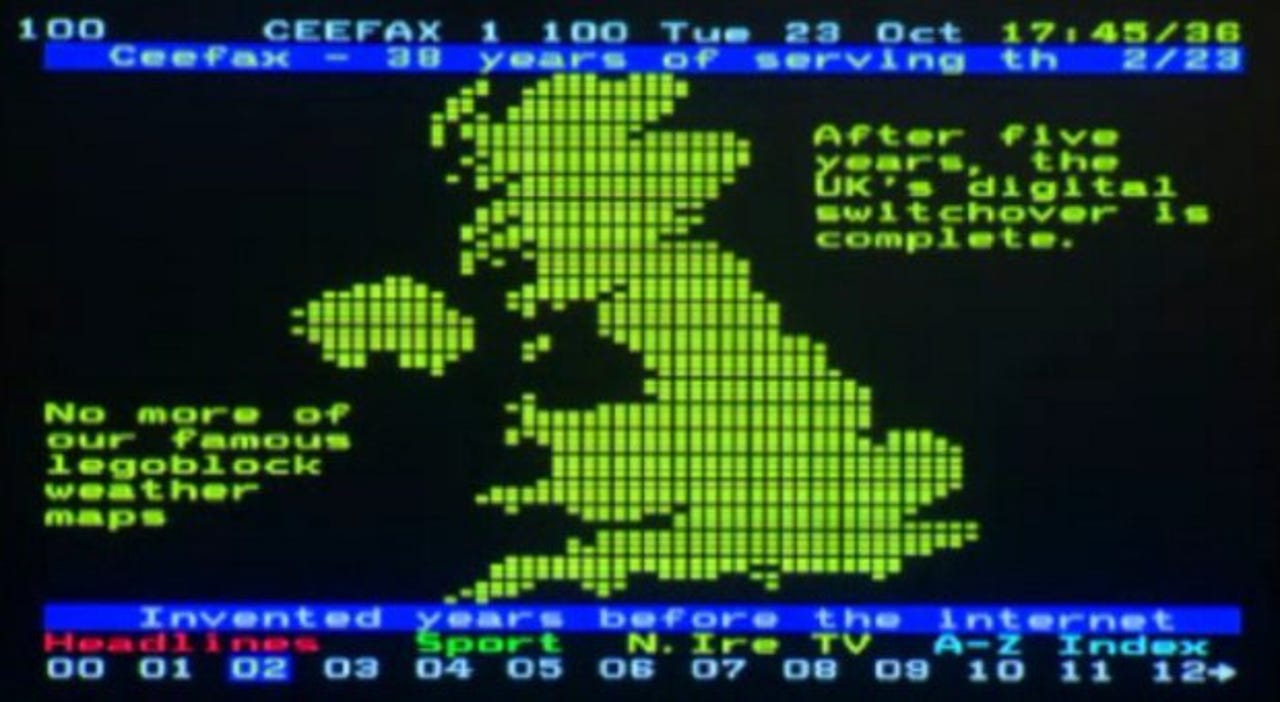UK turns off last analogue TV signals ahead of 4G auction

The UK has turned off its last analogue TV signals, a move that clears the way for the upcoming 4G spectrum auction.
The so-called digital switchover has taken five years, culminating in the end of analogue TV services early on Wednesday morning in Northern Ireland. That switch-off also spelled the end for Ceefax, the venerable text-based news and information service that had been running since 1974 — the Ceefax team said goodbye at 11:30pm on Tuesday evening.

The UK's analogue TV services ran in the 800MHz band, which can now be auctioned off to mobile operators so they can roll out 4G broadband services. This spectrum is known as the 'digital dividend'.
"The UK's switchover to digital has been a huge success," Ofcom chief Ed Richards said in a statement on Wednesday. "Not only has it created more TV choice for consumers; it has also freed up vital capacity that will be used to deliver mobile broadband services to 98 percent of cities, towns and villages across the UK."
The spectrum auction process will begin later this year, with bidding taking place early next year.
Spectrum in the 2.6GHz band will also be included in the auction, but the 800MHz spectrum is particularly valuable due to its long-range capabilities, which allow operators to deploy comprehensive coverage with less equipment.
The UK's analogue TV services began in November 1936, meaning they had a 76-year run before succumbing to the digital.